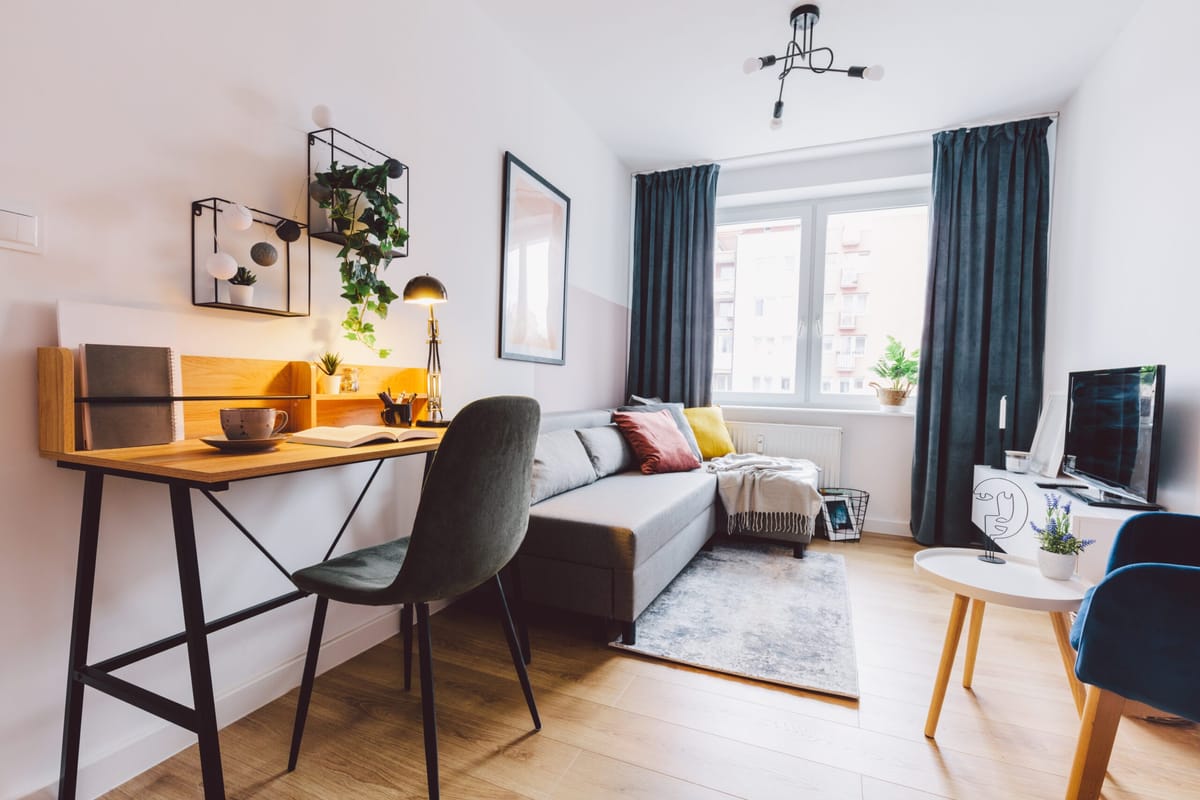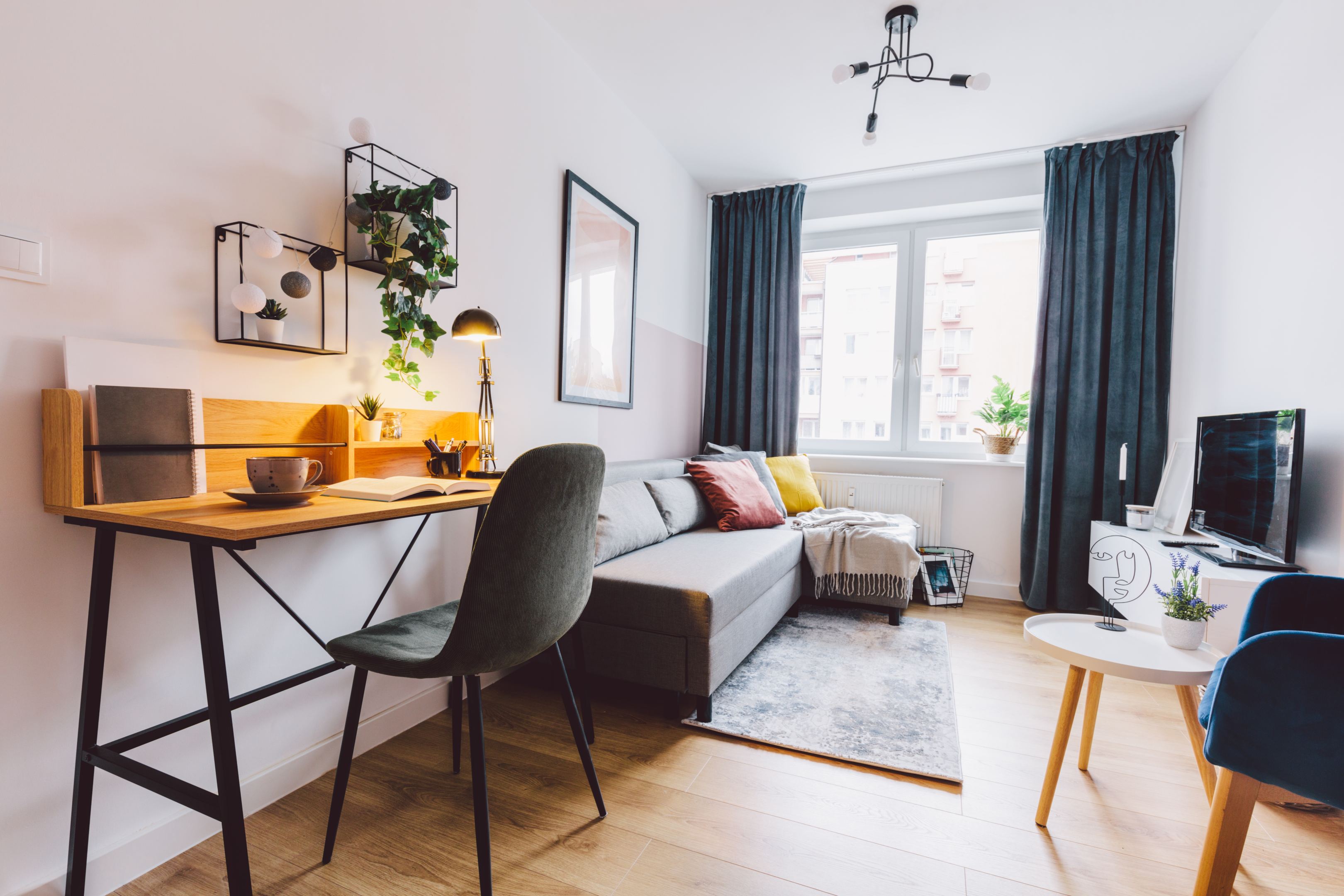Airbnb Friendly Apartments: Where and How to Find One

Apartments can be more difficult to turn into a vacation rental. Not only do you need to work magic with limited space, but you’ll also most likely have to abide by more rules.
To make it easier for interested hosts to identify apartment buildings that support short-term renting, Airbnb launched a new program in the United States at the end of 2022. There are more than 25 markets included in their list with cities like Jacksonville, Houston, and Phoenix just three examples.
Alternatively, you can still go the traditional route of partnering with landlords directly.
Here’s a closer look at Airbnb’s program and tips for how to contact landlords about listing a spare room or the entire place on Airbnb.

What’s the Airbnb-friendly Apartments Program?
This program is aimed at renters who want to rent out a spare room to help them cover their living costs. If you find that you travel a lot, either for work or pleasure, you can also look into this program and rent out your entire apartment for those times when you’ll be out of town.
It basically lists apartment buildings where Airbnb rentals are allowed. That said, there are still rules that you’ll need to follow. Each apartment building has the prerogative to set its own rules. These rules can include quiet hours and the maximum number of nights that you may rent out your apartment per year. In addition to these rules, you’ll also still need to abide by local short-term rental regulations as well as the community standards of the platform.
It also includes an earnings calculator. This tool will give you an estimate of how much income you can generate if you were to rent your apartment on a part-time basis using factors like size or number of nights.
Once you’ve found a potential apartment, the program also makes it easier to connect with the building management. You can, for example, organize an in-person tour or use this avenue to answer specific questions. Then, once you’re ready to list, you can use Airbnb Setup to get started.

The Alternative — Approaching Landlords Directly
If you don’t want to use Airbnb’s network of apartments, you’ll have to find landlords on your own (aka the way that hosts who didn’t want to buy a property had to find apartments to list before the program). This is what is referred to as rental arbitrage.
The challenge of this approach is that landlords are often reluctant to allow subletting (which you’ll in effect be doing). Just because the apartment building allows subletting doesn’t mean that the landlord will also approve.
Common issues with subletting
To encourage a landlord to agree to subletting, you first need to understand the reasons for why they’re against it. Try to see it from their point of view.
Here are some of the most common reasons why they could be apprehensive:
- Their insurance policy excludes subletting
- They’re concerned about parties
- They don’t want to tarnish their relationship with their neighbors
- They don’t want to add to the housing crisis
- They won’t be able to approve tenants
These are all valid concerns. If you want to have a good chance of getting their approval, you’ll need to acknowledge these potential issues and provide a few suggestions for how you plan not to let it become a problem.
Finding willing landlords
Once you’ve devised a business plan that includes strategies for how you’ll look after your landlord’s apartment without staying there, you’ll need to find a landlord interested in partnering with you.
You’ll probably have the best luck with the internet. You can do a quick Google search to find rooms or apartments for rent in a specific area. You can also refer to online real estate websites. The advantage of using a real estate website is that you’ll be able to use more filters to narrow down your search. It can also be more trustworthy than an ad placed on Craigslist or Facebook Marketplace.
While basically anything can be found online, don’t rule out the power of in-person connections. You can also approach a real estate agent. Sure, you might have to pay more money, but they’re experienced at drafting a lease — a document you’ll definitely need.
If you’re currently renting an apartment, don’t rule out your own landlord. Just be open about your plans to sublet it to travelers by listing it on a site like Airbnb. The last thing you want is to get evicted because you tried to do something on the sly.
Final Thoughts
Whether you use Airbnb’s database or search on your own for Airbnb-friendly apartments, make sure that you invest in the right tools to make this venture a success. After all, you don’t want to be the reason that an apartment building decides to put up a sign that forbids Airbnb rentals.
With the help of a tool like iGMS, you’ll be able to communicate with new guests seamlessly, sync calendars to avoid double-booking confusion, and integrate it with noise monitoring tools like NoiseAware or Minute to ensure the peace and quiet of the whole building.
iGMS provides a comprehensive suite of tools designed to elevate every aspect of your hosting experience. Check out our standout features tailored for both novice and seasoned hosts and property managers:
- Centralize your operations with the Channel Manager, effortlessly managing multiple listings across leading platforms.
- Enhance guest relations using Automated Messaging, equipped with customizable templates for consistent and timely communication.
- Simplify financial transactions and invoicing with Payment Processing, integrating seamlessly with Stripe for smooth operations.
- Boost your property’s reputation and guest loyalty by encouraging reviews through Airbnb Automation.
- Optimize direct guest bookings with the Direct Booking Management Toolset, offering a streamlined experience for both hosts and guests.
- Efficiently coordinate tasks and schedules with Team Management, ensuring your property is always guest-ready.
- Stay ahead with real-time tracking and insights using PROtrack, a feature designed to give you a competitive edge in the market.
Dive into these features and more with iGMS, your comprehensive solution for short-term rental management. Elevate your hosting game and achieve unparalleled success today!







